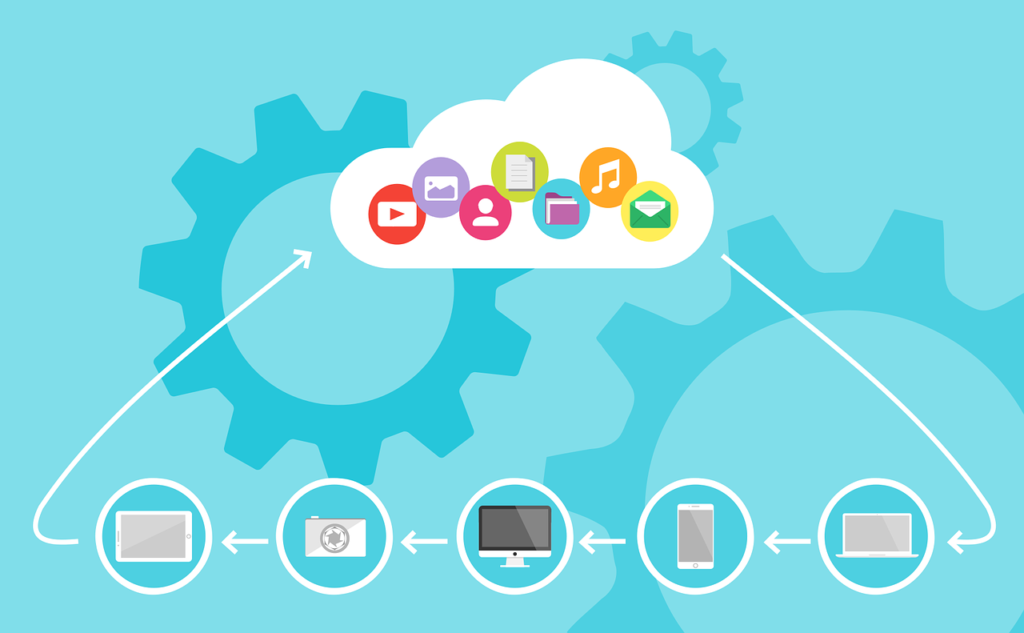The advancement in cloud computing technology and wireless networks has introduced the mobile cloud computing concept. Today, everyone has a mobile, and they are using them more than a desktop and PC. Initially, cloud computing technology was accessible only on desktop and personal computers, but with the evolution of mobile cloud computing, this constraint has been removed.
Now, end users and organizations can access their data in the cloud over mobile phones and do work on mobile phones from anywhere and anytime. With the help of mobile cloud computing, all the services and opportunities provided by cloud technology can be availed on mobile phones without any fear of security. This article explains about mobile cloud computing and its benefits to businesses.
1. Introduction
Mobile phones are present near everyone today. They are mini-computers that will be in our hands wherever we go. It makes humans connect with the world every time. Mobile phones are used in every field today, such as education, business and others. According to the researchers, cloud computing technology will change mobile usage.

Cloud computing is a technology that allows organizations and end-users worldwide to do and achieve success in the future. With the help of mobile cloud computing, cloud computing technology can interact with users over their mobile phones.
With the help of cloud computing and mobile cloud computing, organizations and developers are developing mobile applications accessible on the cloud. They are creating e-commerce sites to shop over mobile phones, m-games, m-banking, m-health, and others.
2. Cloud Computing
It is the latest emerging technology that provides dynamic and virtual resources as services to organizations and end-users that can be accessed using internet technology. Cloud computing is used by every field today and will reshape the world with new opportunities in the information technology sector.
This cloud computing technology is used on various devices like laptops and PCs to use resources and services over the internet. Reduction of maintenance and repair costs and data accessibility at the time of need are the main advantages of cloud computing. The six cloud computing paradigms are mainframe, PC, wireless network, internet, grid and cloud computing.
3. Cloud Computing Services
- Software as a Service (SaaS): In this, different software applications are deployed by the vendors of the applications, which are accessible to the cloud users on their demand. The clients or users of the cloud do not need to pay a license to install applications into their system or maintain it. All licenses, infrastructures, and maintenance are seen by the cloud service providers. Cloud users can use any software application at any time they want.
- Platform as a Service (PaaS): These providers will provide every platform like ruby, PHP, Windows, Linux, X-cross, MySQL, J2EE, and other platforms to the users and developers to develop applications. They need to not worry about storage, service, and other infrastructure as everything is provided by the PaaS service providers.
- Infrastructure as a Service(IaaS): it provides different infrastructures to the organizations, such as storage, network, operating systems, processing and other computer resources to the organizations in the virtual environment that reduces the storage space in the workplace.
- Monitoring as a Service (MaaS): it provides security services. This helps organizations to protect their data from cyber-attacks and threats and ensures that business organizations are meeting all the government compliances and regulations. It will monitor all the other services of the cloud that are used in the organization.
4. Mobile Cloud Computing
Mobile cloud computing is the new concept in which all the mobile applications, processing, and data storage space are moved to the centralized computing platform. Then, all the applications are accessed over the internet using the mobile browser. It is built using principles like pricing on-demand access to the users, effective communication process, and providing everything as a service such as a network, applications, and payments on demand so that there is no need to download any applications on the mobile.

It is a new concept that is attracting business organizations and entrepreneurs to provide usage of mobile applications at the least cost and expense. Mobile cloud computing is an infrastructure where the storage and processing of the data happens outside the mobile devices in the central location.
5. What Are The Requirements?
- It requires APIs that allow to access mobile services even to users who do not know the technologies.
- Mobile cloud computing must be able to deploy using the single service level agreement.
- The mobile cloud computing service providers must use policies and procedures and allow mobile users to choose whether to use mobile cloud computing or not using the opt-in and opt-out options.
6. Importance Of Mobile Computing Applications
Mobile cloud computing plays a vital role in the future by combining the features of mobile services with cloud computing technology. It increases the mobility, security, and availability of the data. Today, business organizations are providing remote working opportunities with the help of mobile cloud computing. They allow employees to use their own devices at the workplace to do business operations. Some of the applications of Mobile cloud computing are
- M-commerce: It allows organizations to develop a commerce model that is accessible on mobile devices. However, this imposes many challenges on developers, such as bandwidth issues, mobile configuration complexities and others.
- M-learning: Mobile learning is similar to electronic learning; this m-learning reduces the limitations of e-learning, such as the high cost of the network, limited educational courses and others.
- M-health: It provides various opportunities to health centres and increases the efficiency of health treatments.
- M-banking: This allows users to make payments and transactions using mobile devices.
- M-game: These provide high graphic games to mobile users whose data and configurations are done in the mobile cloud computing environment. It just needs to be accessed by the users over the internet and enjoy the games.
7. What Are the Benefits?
- It enables mobile cloud providers to create different applications related to business, education and entertainment. These apps are available to users on demand and have high accessibility and scalability.
- Network operators can allow mobile users to use the network as a service by providing commercial solutions.
- Enterprise solution providers will allow organizations to improve customer services, employee collaborations, and productivity.
- Web and application developers can create different applications accessible on mobile devices to increase customer satisfaction.
8. Issues In Cloud Computing
The cloud stores the data and applications in central locations in some other countries. Different countries have different rules and regulations that create legal issues. If the user or organization uses cloud storage, their data is exported to other countries. Even the cloud service providers cannot answer where the data is located and who manages it.
It has multiple backups that are stored in various locations. When using cloud computing, the whereabouts of data will be unclear to the organizations and the users using the cloud, which creates legal issues. Before using the cloud, organizations need to confirm the meeting compliance with the service providers to reduce lawsuits and make an agreement with them.
9. Conclusion
Cloud computing and mobile cloud computing are emerging technologies that increase the demand for networks as a service in the future. Even today, only some companies use cloud computing due to security issues like cyber attacks. Mobile cloud computing reduces technical and commercial fragmentation issues and ensures effective collaboration between the service providers and the operators.
Mobile cloud computing creates an effective environment and provides many opportunities to organizations and end-users in the upcoming years. The challenges to mobile cloud computing have been described above and need to be concentrated on to make mobile cloud computing a more secure environment.